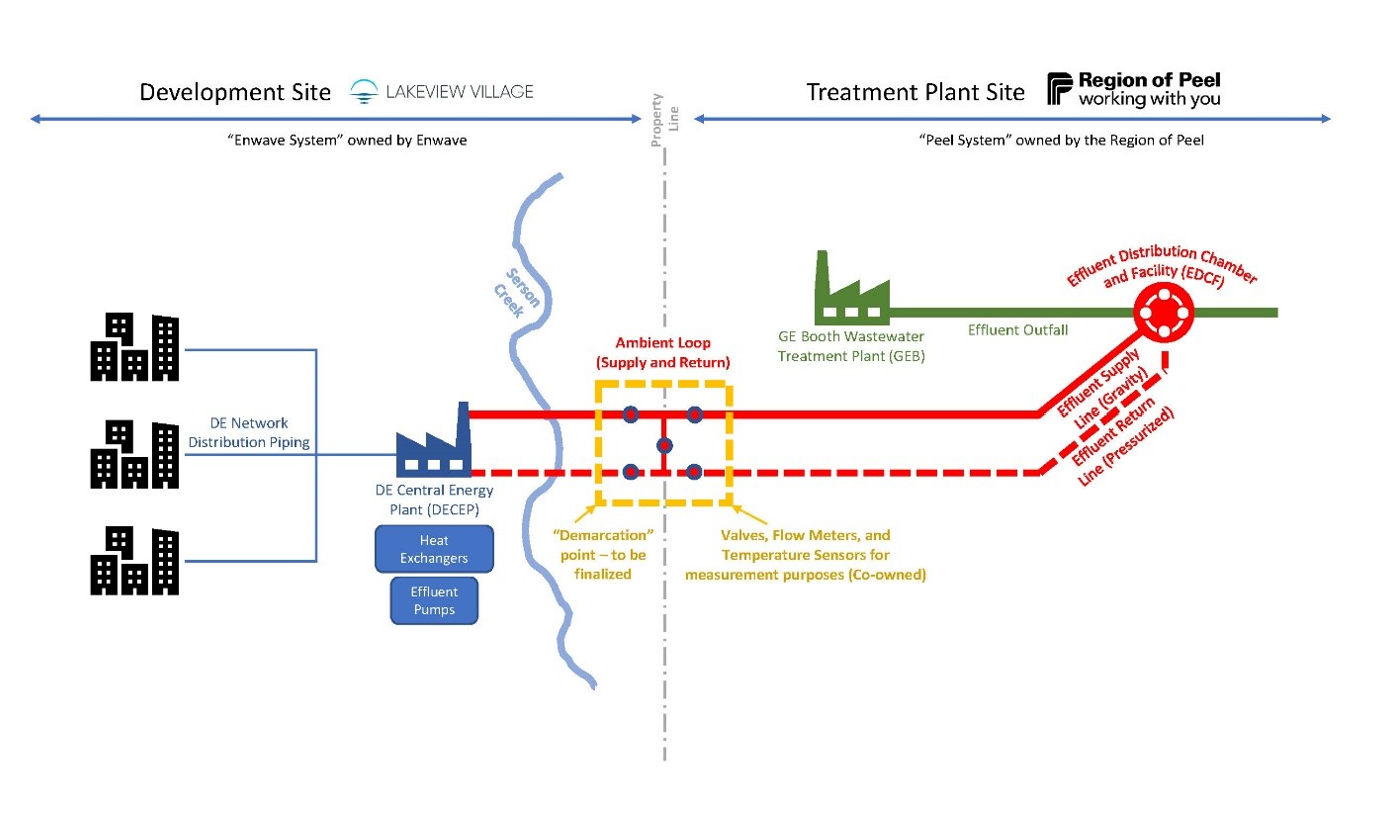Climate Action Award
The OWWA/WEAO Climate Action Award is an annual award that recognizes and acknowledges innovative projects and programs related to resilient infrastructure or that reduce the climate impacts by having a low or net-zero emissions footprint (mitigation). The award is administered by the OWWA/WEAO Climate Change Committee.
Call for Submissions
The 2024 Call for Submissions is now closed.
To view the application questions and scoring criteria, please click here.
2024 Winners
GHG Reduction / Mitigation Stream:
York Region
2023 Winners
Climate Change Resiliency / Adaptation Stream:
City of Guelph
The City of Guelph developed their first Climate Adaptation Plan to address the risks and impacts of climate change on water and wastewater infrastructure, operations, and services. The City integrated climate risks into asset management and planning processes using a framework for addressing the challenges faced by the water and wastewater industry, such as increased flooding, drought, and water quality issues. In addition, Guelph’s Climate Action Plan was innovative by considering stakeholder engagement and including a Diversity Equity & Inclusion (DE&I) lens recognizing the disproportionate impact of climate change on vulnerable populations. Guelph’s Adaptation Plan was developed by Matrix Solutions.
.png)
GHG Reduction / Mitigation Stream:
Region of Durham
The Region of Durham developed a long-term greenhouse gas strategy specific to its water and wastewater assets which aligned with the Region’s Corporate Climate Action Plan commitment of net-zero by 2045. The strategy includes a comprehensive GHG inventory inclusive of process emissions of methane and nitrous oxide, re-baselining its historical inventory, established interim GHG reduction targets, developed an action plan for GHG reduction, and identified areas for future improvement to move towards the 2045 net-zero target. Durham Region’s framework for developing the strategy has already been levered by other Ontario municipalities. The strategy was developed by Jacobs.

Previous Winners
2022 Winners
Adaptation/Resilience Category
The City of St. Catharines Climate Change Adaptation and Asset Management Project
The winner in the adaptation/resiliency category is the City of St. Catharines for integrating climate change adaptation into their asset management program. The Climate Change Adaptation and Asset Management Project builds from the City's Corporate Asset Management Plan and guides the City's decision making on infrastructure assets. The pilot project focused on water and wastewater assests and had three phases to demonstrate a methodology and framework that could be applied across all other City assets.

GHG Mitigation Category
Region of Peel's District Energy and Wastewater
The winner in the GHG mitigation category is the Region of Peel's District Energy and wastewater energy transfer system to provide clean heating and cooling to the new Lakeview Village 18,000-person development. The wastewater energy component will utilize treated wastewater effluent from the GE Booth WRRF as the source of thermal energy for the district energy system. The project aligns with the Region's Climate Change Master Plan with an anticipated reduction of 10,000 tonnes-CO2e per year by eliminating naturnal gas that would otherwise have been used for heating. It should be operational in 2030.

2021 Winner
The City of Toronto's Wastewater Energy Transfer Project
Wastewater energy transfer (WET) is a massively underutilized renewable energy source across Canada. Though there are a growing number of projects breaking ground in Europe, very few North American municipalities have allowed WET systems to be installed. Through Noventa Energy and the University Health Network, Toronto Water is delivering the world's largest raw wastewater energy transfer, (WET) system. The project will provide 1.8 billion KWh of low-carbon energy to Toronto Western – about 90% of the hospital's heating and cooling needs. The total estimated carbon dioxide savings, over 30 years, equals 249,811 tonnes (calculated from electricity and natural gas savings as deferral of consumption). The carbon savings are equivalent to removing 1,800 cars from Toronto's roads annually. The project has identified the available heat/potential for 291 MW from additional connections from 300 kW to 20 MW for another 30 smaller users through the creation of a city-wide WET program. The key benefits are energy reliability for buildings, and revenue for the City for the sale of thermal energy while avoiding CO2e from energy consumption. There is exciting potential in their plans to expand and extend to other building infrastructures (up to 30) as well as discussion with other adjacent municipalities (eg. Mississauga). The project offers large GHG reductions but also improves the climate resiliency of the individual structures. The judges applaud Toronto Water’s initiative and success so far and encourage their efforts to extend the scope that would contribute substantial GHG reduction and climate resiliency benefits.
2020 Winner
WSP Canada Inc. / The Regional Municipality of York
